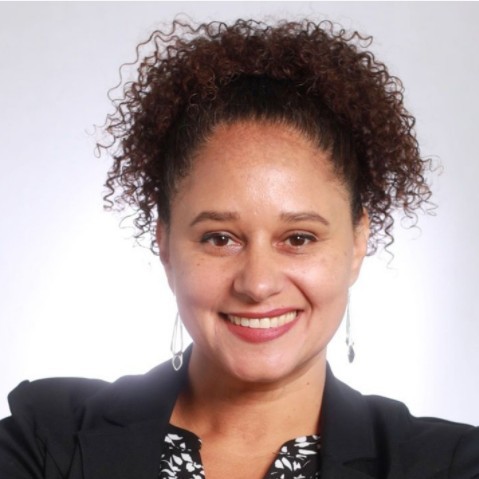After serving as interim since May 2022, Michelle Fontes was appointed as the assistant vice president for community, equity and diversity at the University of Rhode Island.
Fontes got involved in diversity, equity and inclusion (DEI) in her early 20s with help from mentors, according to Fontes. As an undergraduate student at URI, , she was a member of the Black Student Leadership Group (BSLG), which advocated for a multicultural center on campus, as well as other important points that students of color needed, Fontes said.
Post-graduation, she worked in corporate and then non-profit work; where she started working with middle school students from diverse backgrounds as a director of after-school programs in Providence.
“I have always wanted to support diverse students because I’m a woman of color that has had real challenges,” Fontes said.
While serving as interim, Fontes had some hesitation about coming up with goals because she didn’t know what was going to happen with her position. However, she still put the work in and was able to continue it and is still doing it now as the official assistant vice president.
Fontes’s big goals for the academic year are connecting with all of the center’s directors to set expectations on how they will collaborate and support each other. The centers include the Gender and Sexuality Center directed by Annie Russell, the Multicultural Student Services Center directed by Jean D. Nsabumuremyi, the Women’s Center directed by Ana Barraza and the Military and Veterans Education Center directed by Bob Flynn. Another goal is working with the Advanced Teaching and Learning Office to think about ways they can engage faculty and staff socially, Fontes said.
Other things she wants to do is to support the diversity dialogues student organization, which provides facilitation around topics such as microaggressions and social justice. She advises this group with the assistance of a graduate student. The first goal is to help them grow and recruit more students to facilitate more sessions for their peers.
The graduate school has a diversity badge program which provides workshops to help them learn about diversity, equity and inclusion (DEI). The diversity dialogues group strives to do the same thing with their peers. However, there’s no ongoing program for faculty and staff and she wants to change that, Fontes explained.
“If students are getting the learning but the faculty and staff aren’t, there’s a disconnect” Fontes said. “For example, if you’re a graduate student and you go through the diversity badge program and the faculty member doesn’t know anything about DEI, it can be frustrating for the students that have invested time into learning and wanting to practice equity in their lab spaces,” Fontes said.
Fontes said balancing her new role and the groups she’s involved in including the Alumni of Color Network, and the Bias Resource Team and others can be a lot but she knows it is necessary to continue to be a member of our community groups that are working to make things better for our diverse community.
The women of color network supports Fontes role as assistant vice president in two separate ways, according to Jaqui Springer, the assistant dean for student support and advocacy services and the co-facilitator for the women of color network.
The first way to support Fontes is keeping the network a space where someone with the role that feels big can show up as her genuine self, Springer said. It’s meant for her to decompress and not have to worry about people coming to her for advice and guidance when she’s stressed out.
The second way is to find patterns of concern or patterns of challenges concerning community, equity and diversity, according to Springer. The network has the ability to raise awareness to information about things people are experiencing.
“Here’s some things that people are noticing and it should not come across as a demand that’s tied to a specific office or to a specific funding,” Springer explained. “I think when you have a role as big as that one, it’s important to hear from a breadth of people or people from a breadth of different spaces.”
Equity and diversity is important in a college campus because people should feel as though they are their authentic selves, according to Springer. The higher education system was founded for a very small privileged group of people. The network wants institutions to be an inclusive space that are welcome to all students.
“If we’re getting students into URI but not able to retain them, we aren’t meeting the missions and goals that we say we are,” Springer said.
Students can be part of URI’s change in DEI by elevating their voice and getting involved instead of shutting down, according to Springer. If there’s something specific that students are encountering or that they need but isn’t given, they need to speak up about it.
“If we operate in this space of ‘oh well no one’s going to do anything or no one cares anyway,’ then that doesn’t change anything,” Springer said.
“I’ve always wanted to do better for my community so I feel humbled and privileged to be in this role because I never thought I would be here,” Fontes said.

